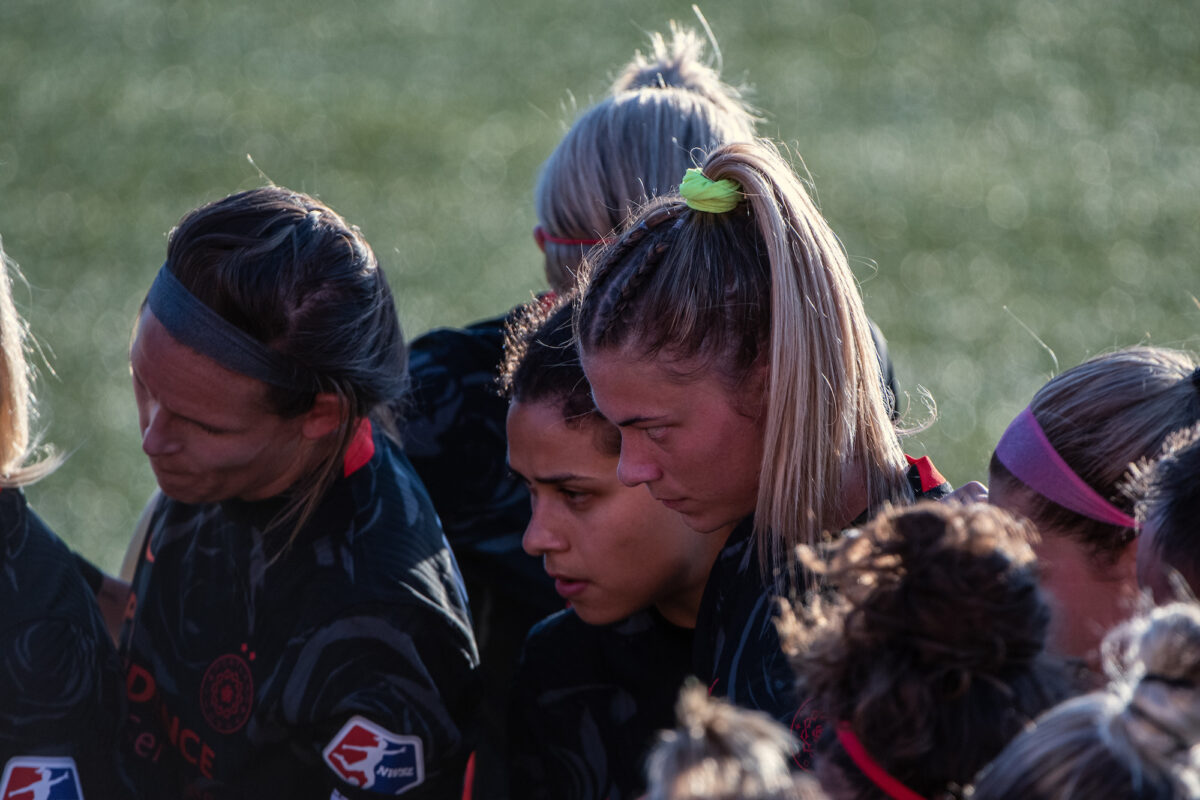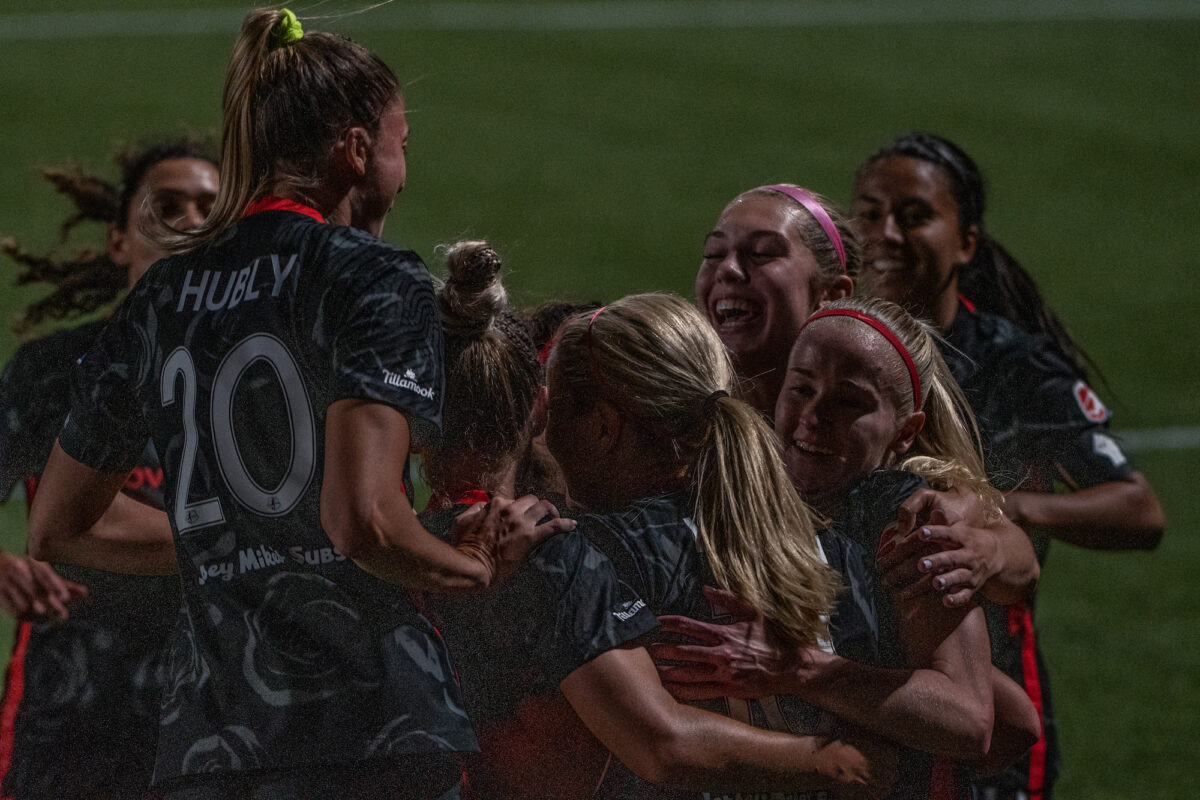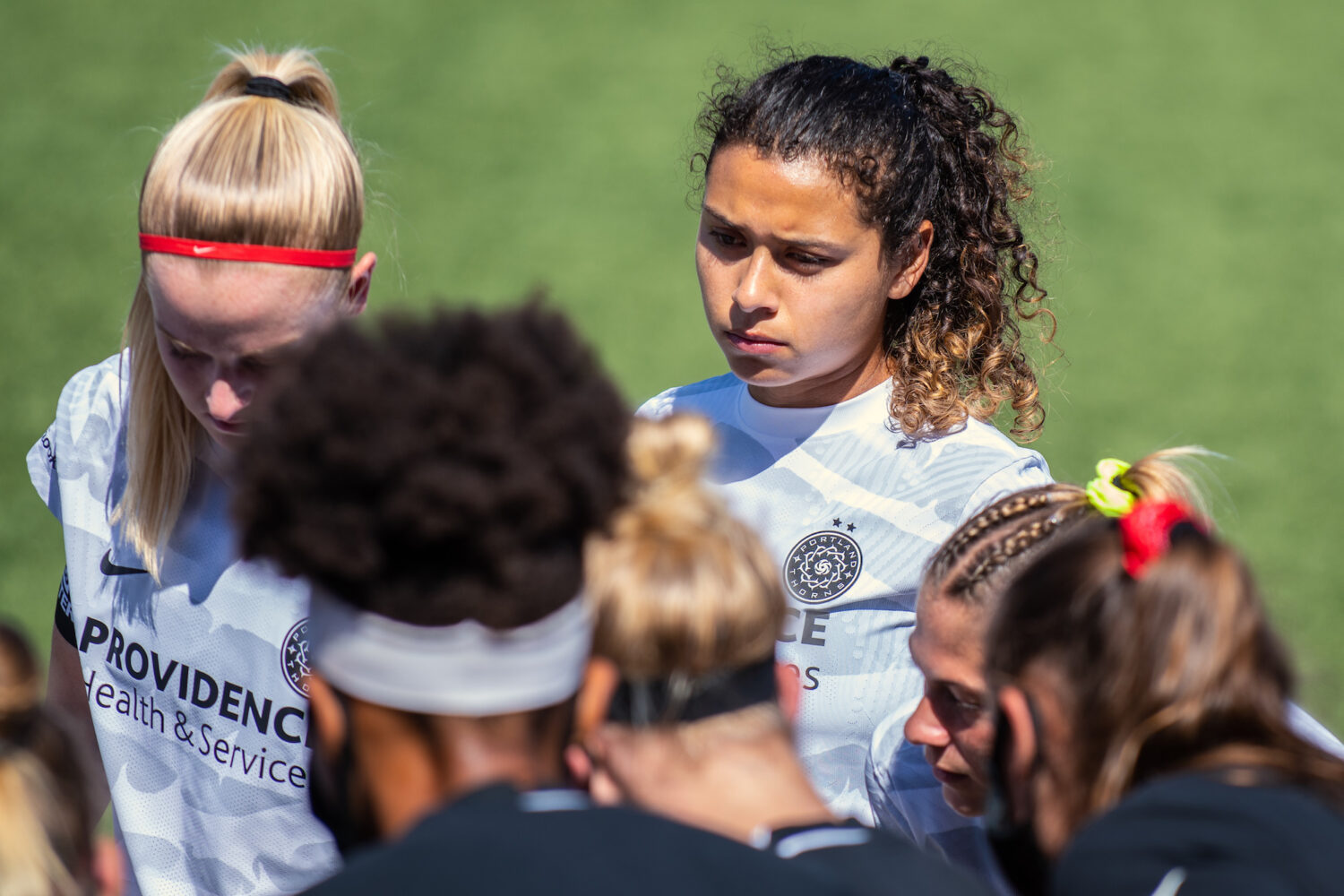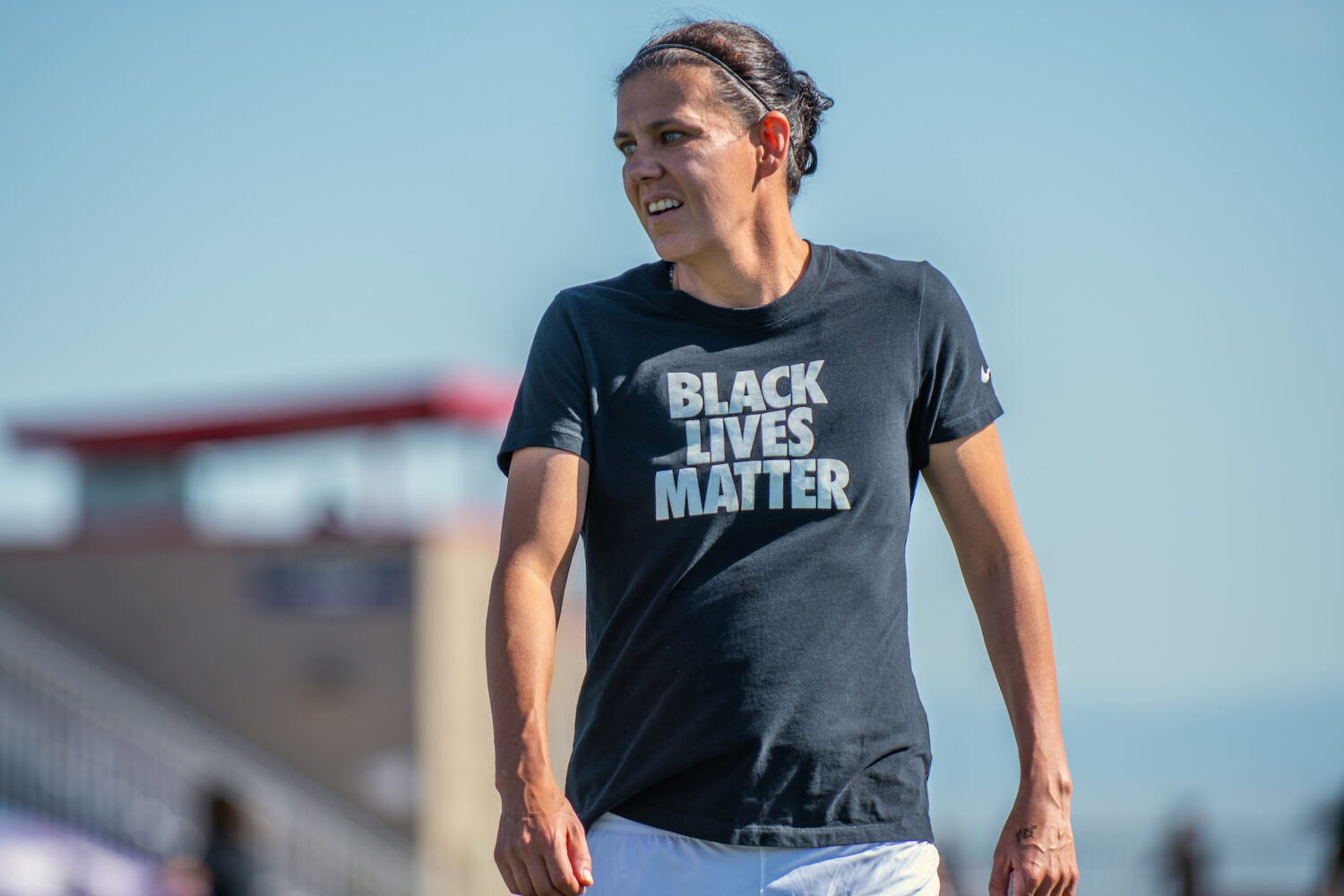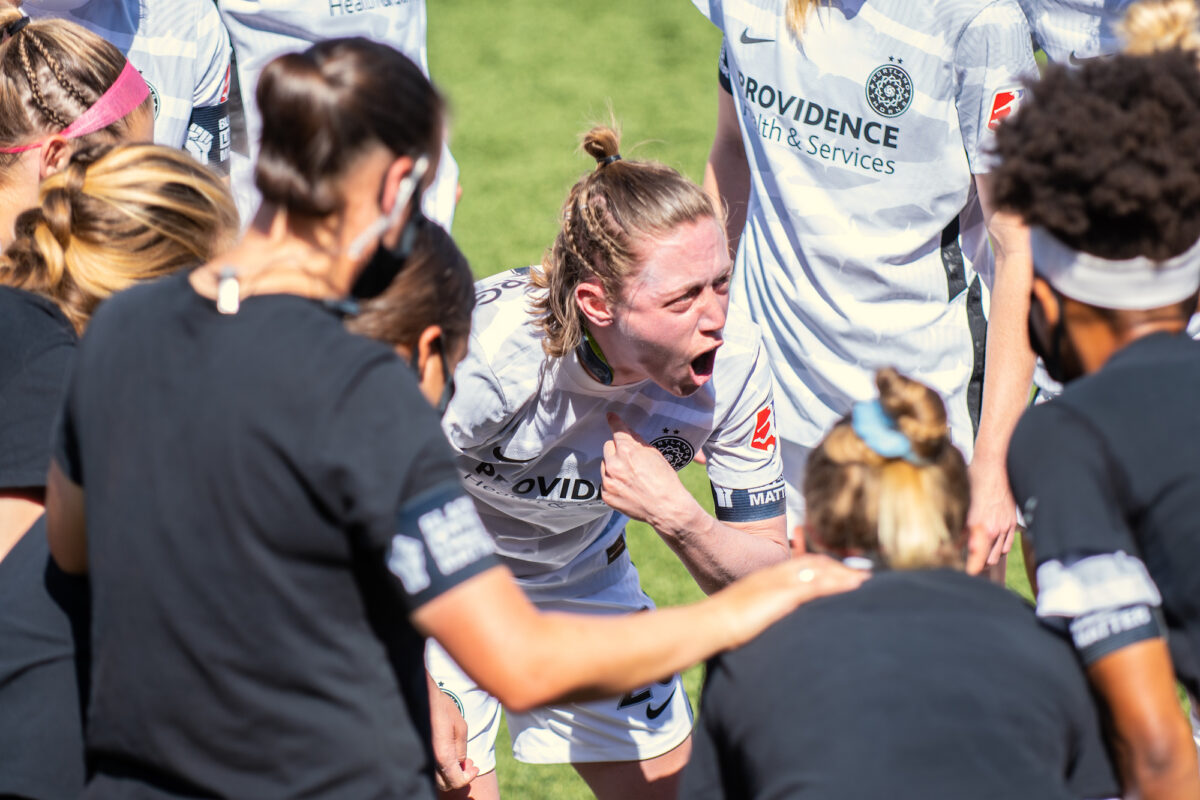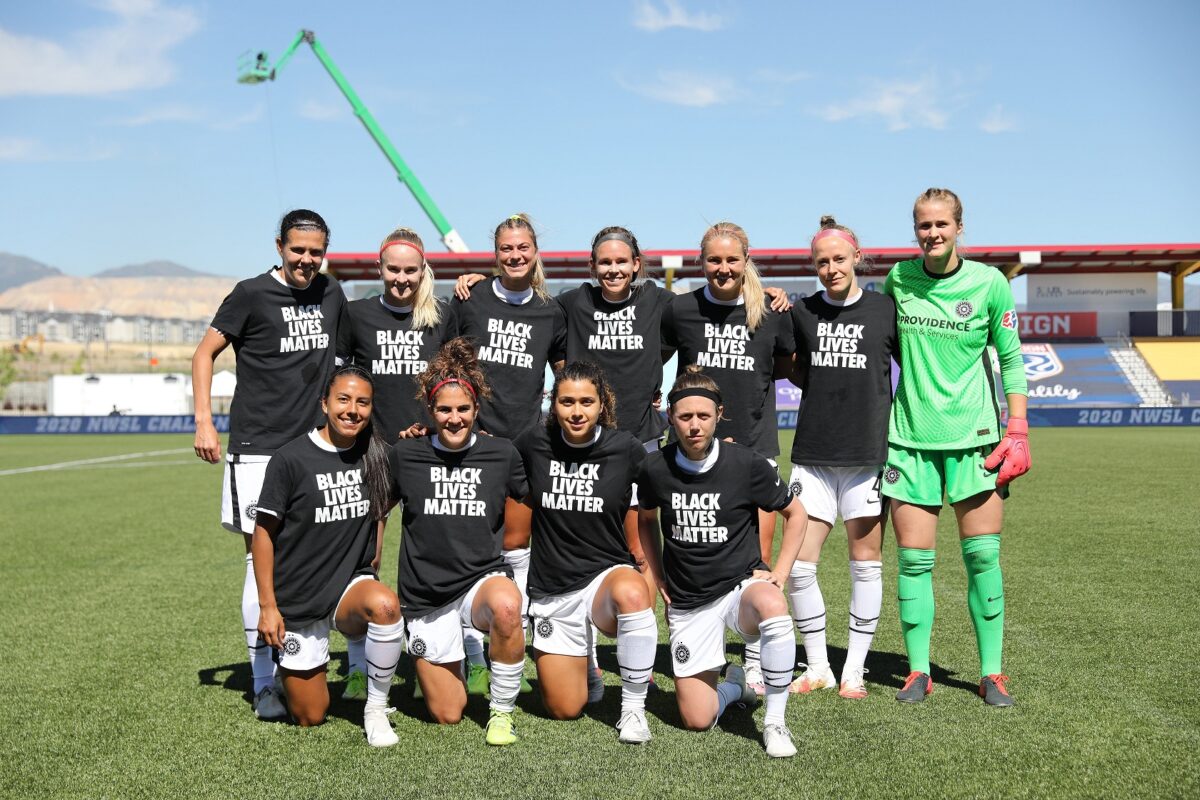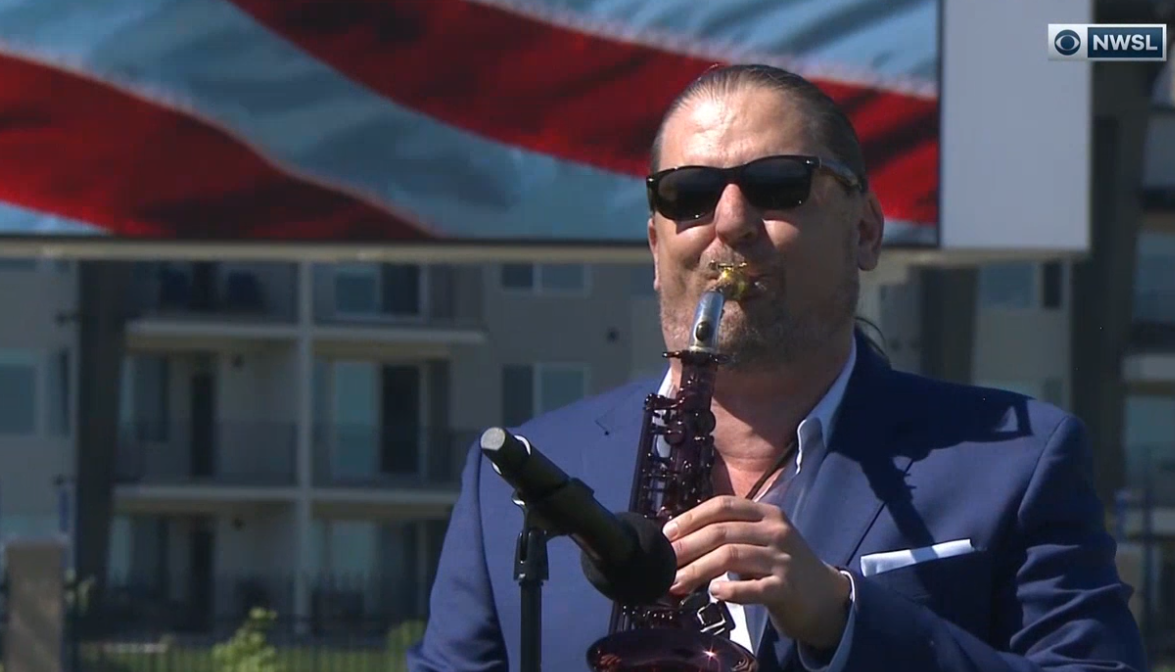Last weekend, Thorns defender Kelli Hubly took to Twitter to voice her support for Black lives and her opposition to racism.
She’s in the minority—most white NWSL players have not spoken up on their Black teammates’ behalf. I was curious to hear how Hubly got to this place. As much as we should all focus on listening to and elevating Black voices, I also think it’s crucial for white people to talk to each other about race, because at the end of the day, white supremacy is our problem. Our conversation has been lightly edited for length and clarity; the full audio version is available on our Patreon for supporters at the $10 level.
Katelyn Best: You said in that first tweet that you had been trying to find the right words to say. What was going through your head, and what was the thing that finally pushed you to say, “I’m going to say something even if it’s not perfect”?
Kelli Hubly: I have a lot of close people to me in my life who are Black, so I’ve had a lot of harder conversations where I’ve felt uncomfortable, they’ve felt uncomfortable, but afterwards it ended up being a great talk that I think has helped me grow, and they grow. Before Utah, I had a couple good talks, and then in Utah, I got that picture [from the tweet] and I was like, “I really want to post this.” And at that point, I know—back and forth people on Twitter, some people say, “I don’t want a white person saying stuff,” and some are like, “I would love white people to be saying stuff.” And my thought process was, I didn’t want to say something that drew too much attention to me versus the real issue, which is Black Lives Matter. So I was in a dilemma of what to say that would make it all about Black Lives Matter and not just like, an Instagram post where I look like a good person.
So I actually have a note in my phone of like, all different thoughts that came into my head, because this was over a month where I would be like, “okay, I want to say something, but it needs to be the right wording.” Finally I condensed it, and it kind of came after—our team does these talks. Like, we do them every week or so, usually on a recovery day, and we either read something, or watch something, and we come back and talk about it as a team, our coaches are there, everybody’s there, and everyone’s engaged. We’ll do a big team talk and then we’ll go into like, smaller groups. So we’ve been bringing more attention to just, everyone educating together and educating each other.
We just had one last Sunday, and it just like, really made me feel like I should post. We haven’t had games, we haven’t had really anything that we could be showing the world, like, this is how we feel. We had Utah and we kneeled, we wore the shirts, we were doing that. But we haven’t really done anything since. So it just felt like the right time for me to post, and I confronted one of my really good friends from home and asked her, “hey, how do you feel about this? Be honest with me. Do you think this is the right message getting across?” And she was like, “Kelli, I love this, this is amazing, I love seeing you use your platform.” So I ended up posting it and I got like, a lot of close friends of mine in the Black community who were like, “thank you so much, you don’t understand how much we love hearing a white person use their platform.” So it was just nice to kind of get my view on things out, because I have a lot bottled up and I haven’t known what to say or when to say it.
Take me back—you said that you guys had a bunch of conversations in Utah, and I know that some of that started even before Utah, but where were you at on these issues going into those conversations, and what did you learn?
So, yeah, we started these conversations before Utah, and I actually started the education process even before those conversations with my team. Like, watching the Meek Mill documentary or 13th before 13th kind of like, really blew up recently.
I grew up in the suburbs of Chicago, in a white area. So a lot of that was so new to me, and I had no idea. I was kind of just like, shocked that this was actually going on. And I felt a lot of shame for a very long time, because as the white person, I’m like, “how are we doing this to other people?” So yeah, a lot of shame, and I kind of just realized like, I have to turn this shame into something better and like, do better, and have conversations with people. When I went home after Utah, I had amazing conversations with my parents about it, because they also weren’t as educated, either. Like, defunding the police, what that truly means—it doesn’t [mean exactly what it sounds like], there’s deeper meaning to it. And just bringing attention to what actually has been going on, because I’ve been so sheltered.
The conversations have been great, because we’re hearing different stories from different players who have had different experiences, and we’ve been super open with each other, and no one’s really judging, everyone’s taking everybody in, and we’re growing together. I’m learning a lot. I’ve read two books about it, and it’s just very eye-opening, and it’s sad that it took me this long to know what truly has been going on.
If it’s taken me, who, I’m a pretty open person—[I’m] open to learning, I want to do what’s best, I want everything to be right in this world. After hearing and seeing, even in Utah, like, us kneeling, people writing comments, these comments are unreal to me! My bubble is so like, “Black Lives Matter!” and then I go onto Instagram or Twitter and these comments are like, insane! I’m shocked that people are still thinking this way, and it’s like, what can we do to change these people’s minds, just get them to educate themselves a little bit? It’s just crazy.
Yeah, that’s interesting, and I think that I am kind of in a similar bubble to you in that everybody I know sort of is on the same page: kneeling is good, Black lives matter, we agree something needs to happen about police brutality, and then you see people on Twitter or whatever, disagreeing with that, and it’s hard to wrap your head around.
I get furious. I’m like, I need to say something! But I can’t just be replying to all of these people!
I don’t know how much of this you saw or heard about, but during the Challenge Cup there was a lot of discourse around the kneeling. And it’s striking to me that the Thorns are the only team that every single player and every single staff member kneeled that whole time, and—I don’t want to make it about a soccer team—but to me, that seems to say something about the conversations that you had within the team, that were maybe not happening in the same way on other teams. I’m just wondering if you have any insight as to why things might have gone different for [the Thorns].
Yeah, so we, in Utah, had talked about kneeling, and basically said like, how do we feel? Because we kind of wanted it to be us unified together. And basically, we’re a very close team, like I’m sure you’ve heard through people’s interviews. We’re very close and we all really trust each other, so we can have these hard conversations, and if someone felt uncomfortable, we can have that conversation.
So we kind of all decided together. Our coaching staff has been amazing, because they’re supportive of everything we’re doing, and through this whole process they’re learning so much, because a lot of them are foreign, so this is different because they’re not even from America. They’re learning about all of our history, and they’re trying to figure out, “ok, what are we doing, what do you need us to help with?”
So basically, we made a decision, like, if we’re all going to do this, we’re all going to do it, so we decided that we all were going to kneel, and we also decided after the first game, that we were all going to do it in a line together. I feel like we’ve just been really unified, and we have a really good culture, and it’s nice to see and be a part of.
I don’t want to pry into any conversations, but was there any reluctance, were there folks on the team who were like, “ah, I don’t know, I want to respect the anthem and respect the flag,” or whatever? Was there any of that kind of conversation happening?
Yes and no. Some people, it’s family, or just having people, veterans, in their family, so I think that was the hard part, but then when we talked about it, they knew this was the best thing for us to do and they felt good about it. They were able to, say, if their family member said something to them, they were able to have that conversation and express how they were feeling. It’s just been, like, a crazy time, and people from different parts of the country, it’s interesting to see different parents’ views versus like, my parents’ views. So for the most part, I think we were all pretty much on board and felt comfortable doing that.
I don’t know if you watch the WNBA, but they’ve done a series of pretty impressive, very unified, strong statements on these issues. It’s been striking to me how much more unified and I think, frankly, more effective they’ve been as a league, than the NWSL was during the Challenge Cup. I’d love to get your thoughts on this, but I think about the whiteness of the sport of soccer. Do you think that plays a role in how some of these conversations go down?
Definitely. We’ve actually talked about this in our last talk, last week. Basically, soccer’s a super white, privileged sport. It’s expensive to play growing up. You’re traveling, you need support, you need money, basically, to play soccer at a high level. So that’s why I think you see a lot more white soccer players.
But still, it doesn’t give us an excuse for not doing as much as the WNBA. I think what they’re doing is great, and I think looking at what they’re doing, I think it’s sparked a lot of conversations within our team to see what can we do with these games coming up. We’re on CBS our first game. What can we be doing? Can the announcers be giving out facts during our game? Could we like, think of something to put on pregame instead of when the anthem’s playing, we have something else playing, like players talking about stuff going on in the world? What can we be doing to do our part? Because they’re definitely doing way more than us, and it’s been effective. There’s a picture that I saw of the players in the shirts with the seven bullet holes, and I was like, “wow, that is really powerful.” So it like, makes us want to do more when it’s our turn to be on TV.
When you say that you want to continue to support your Black friends and your Black teammates, what does that mean to you?
So, just knowing that they can come to me whenever there’s something going on, because I know times are hard and it’s frustrating, and it’s exhausting, and I just want to be able to support. Not pry, but just know that I’m always here. And to just pay attention more. I think everyone needs to pay attention more. And everyone just needs to be more kind! Like, I don’t know, the world is just crazy right now. It really bothers me, because I just see so much hate going on, and I’m just the total opposite. I have so much love to give to people.
So, support, educate, and be able to spread knowledge to people. When I went home, being able to talk to my parents more and give them a deeper meaning to things that I’m going through here. My parents are like, “oh, you’re so liberal! It must be Portland!” I don’t even think that way, I’m like, this is what’s right! This is, you know, human rights here. So just being able to support and be the best person I can be and do what I need to do to help. If it’s posting more, if it’s donating, whatever I need to be doing to make things better.
Do you have any highlights from the stuff that the team has been reading, or the stuff you guys have been listening to that you might recommend to people?
I think a great place to start is [Ijeoma Oluo’s] So You Want to Talk about Race, the book. That was the first book I read. A couple of my other teammates have read it because we were going to do a book club type thing, so a bunch of people got the book. So we’ve talked about it, and that’s a great place, I think, for people to start, because it touches on a lot of different subjects, and then basically if you want to know more about that subject then you know, like, this is what I want to zoom in on next time I read a book or something. And it gives facts, which you can’t, like—facts are facts.
It gives great stories, which are sad at times. Like she talks about being pulled over, and like, last year I got pulled over. And not once did it cross my mind that I would be scared. I’m just like, “oh my god, no, I’m caught!” My biggest thing is like, is my dad going to be mad at me? That’s what’s going through my head, but when I read this, I’m like, oh my god, people are scared for their life, where like, they’re tweeting that they got [pulled over]. Like that is so crazy to me, because that’s never once crossed my head. I’m so privileged. So that’s a great book.
13th is great because it’s just eye-opening. I really recommend the Meek Mill documentary [Free Meek], especially if you follow Meek Mill, he’s a rapper. So his story is unbelievable. I watched that and my jaw was just like, dropped. I think it’s six episodes and I watched them all in a day and I was just like, there’s no way this is real.
Then I read another book, it was a memoir of Mychal Denzel [Smith], The Invisible Man. It was interesting reading a memoir, and with voting all going on right now, it was really interesting, because in the book he talks about how when he was able to vote, him and his dad woke up at like five a.m. so that they could go wait in line for two or three hours, to make sure they could vote. And to go through like, those depths of waking up, waiting in line for two hours, to just be able to vote? I was shocked because I don’t think my parents have ever waited that long, I don’t think I would ever have to wait that long if I was at home voting—because I vote by mail-in ballot—but I was like, that’s crazy! I don’t know. It’s just really eye-opening and the memoir was really cool to read, because it’s in his shoes, and it’s just a totally different perspective, because it’s also a male perspective. It’s just been really interesting to read and just know more about.
I think the last thing I want to ask you is, how do you approach conversations with people who you feel are less aware of what’s going on, or a little bit less open to learning? Do you have a strategy that you’ve used?
Well, I haven’t really come across that many people that have not been open to it. I think, because yeah, even with my parents, if they weren’t sure about stuff, like, my mom didn’t know the term “defund the police.” And so she’s like, “Kelli, but like, we’re still going to need police officers!” And I’m like mom, that’s not the point! So like, bless her heart, she’s so cute, and then once I told her, she’s like, oh, that makes so much sense.
So I think not like, attacking people for not knowing, and not making fun of them or not thinking they’re a bad person because they didn’t know. It’s more if they’re willing to be open and learn, you just have to start wherever they’re at, and then build from there, but you have to do it in a growing way. You can’t be negative, because then they could feel bad about it, or go into a shell. We’ve talked about this on our team. And Gabby actually said, “I would give them the book So You Want to Talk about Race.” And I think that’s a great starting point for people. And she was like, there’s facts. You read those facts, like, you can’t really argue them. So I think that’s a great way to start, and then it kind of sparks the conversation.
It’s definitely hard, and you don’t want to start an argument over it. But you also need to have the conversation. So, yeah. It’s interesting, but I try to, you know, just be nice about it. Start slow and then get into it. Like I had a couple conversations with my parents, and then I told them to watch 13th. They didn’t understand like, the war on drugs and stuff. And I mean, I wouldn’t probably, either, if I didn’t watch this.
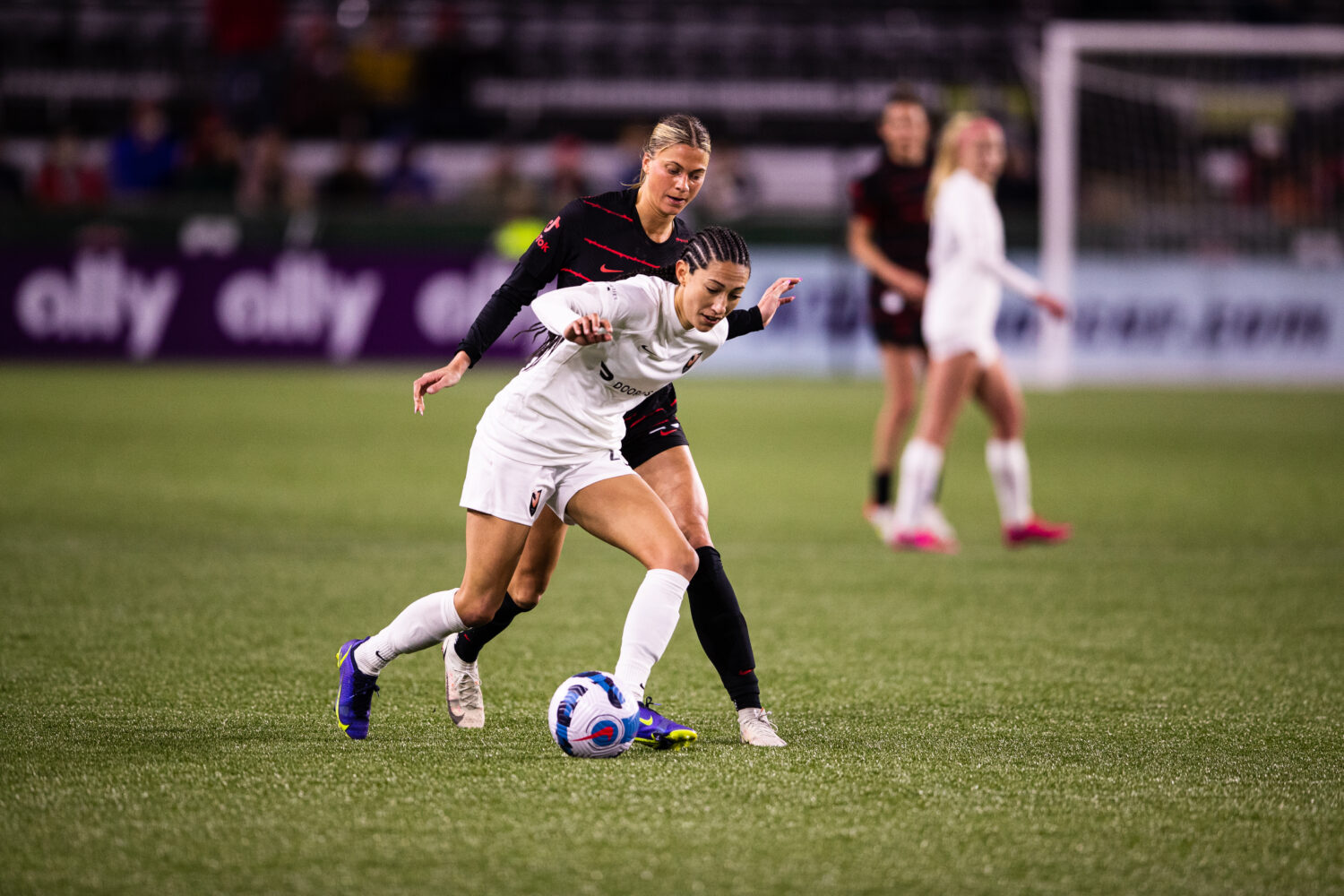

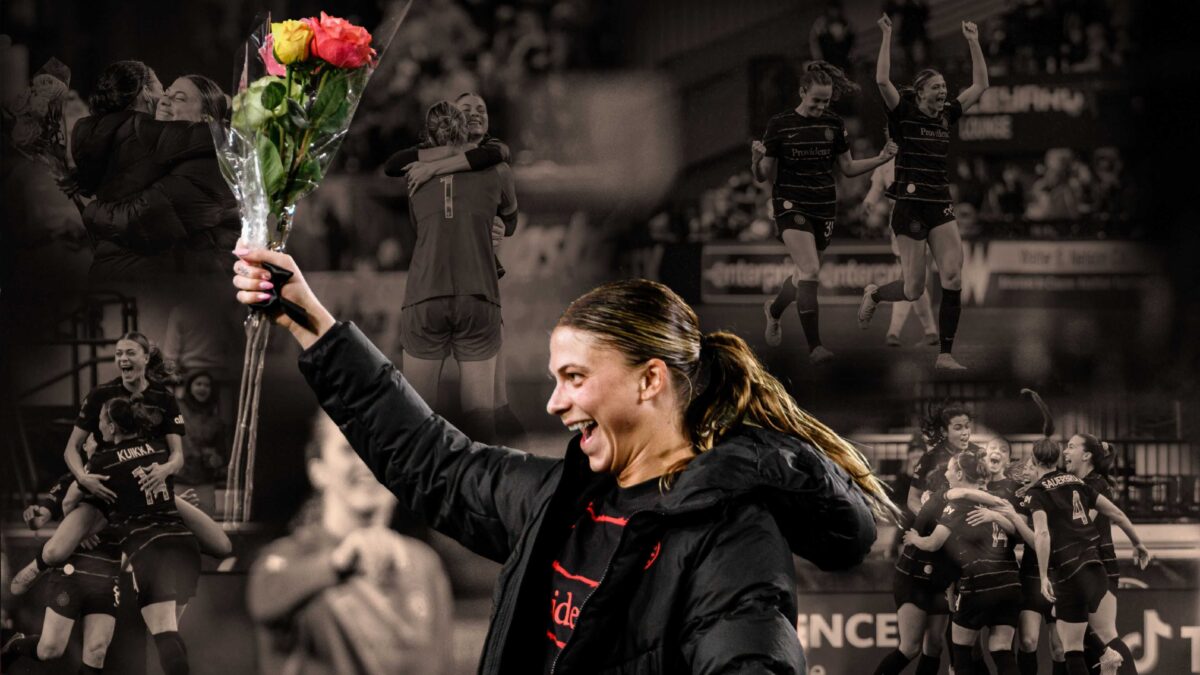
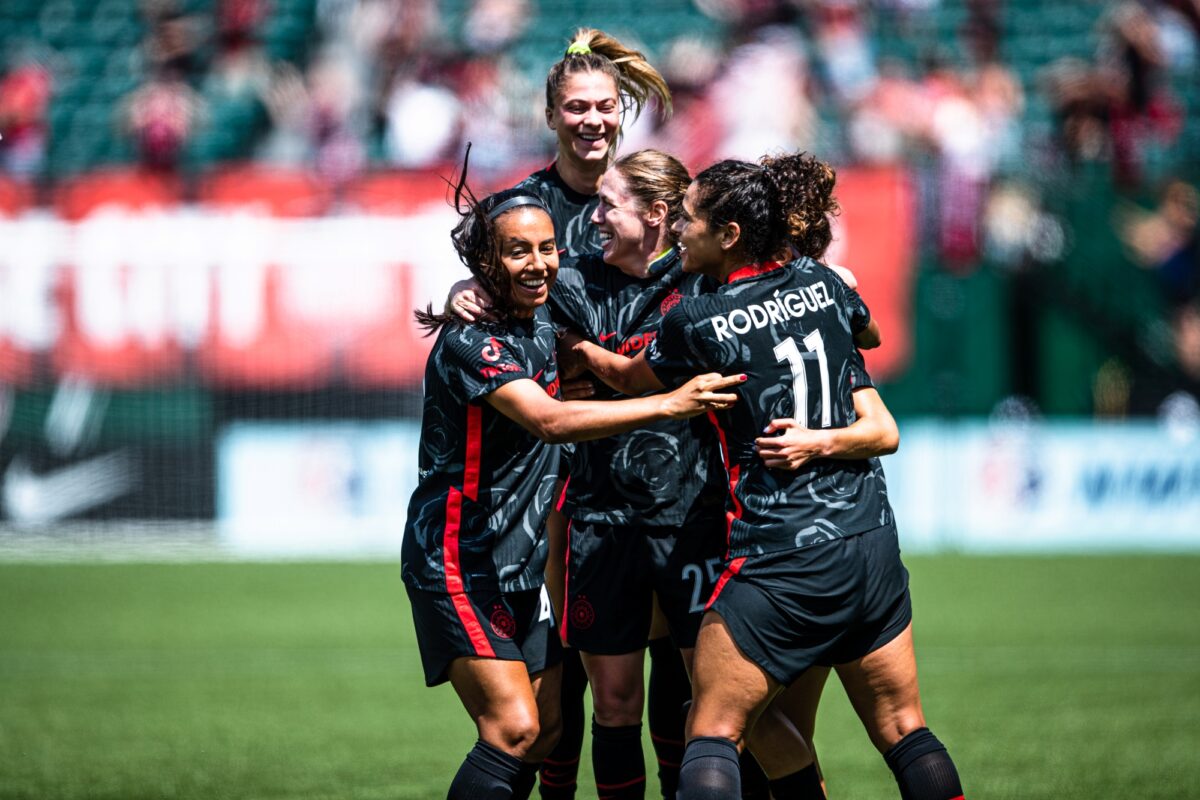
 Unlock with Patreon
Unlock with Patreon